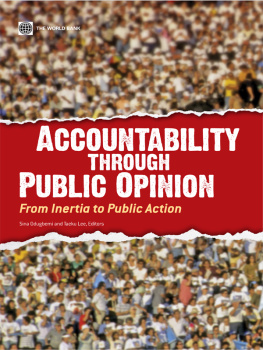The Gao
Other Titles of Interest
Cases in Accountability: The Work of the GAO , edited by Erasmus H. Kloman
The President, the Budget, and Congress: Impoundment and the 1974 Budget Act , James P. Pfiffner
First published 1979 by Westview Press
Published 2019 by Routledge
52 Vanderbilt Avenue, New York, NY 10017
2 Park Square, Milton Park, Abingdon, Oxon OX14 4RN
Routledge is an imprint of the Taylor & Francis Group, an informa business
Copyright 1979 Taylor & Francis
All rights reserved. No part of this book may be reprinted or reproduced or utilised in any form or by any electronic, mechanical, or other means, now known or hereafter invented, including photocopying and recording, or in any information storage or retrieval system, without permission in writing from the publishers.
Notice:
Product or corporate names may be trademarks or registered trademarks, and are used only for identification and explanation without intent to infringe.
Library of Congress Cataloging in Publication Data
Mosher, Frederick C.
The GAO.
Bibliography: p.
I. United States. General Accounting OfficeHistory. 2. Finance, PublicUnited
StatesAccountingHistory. I. Title.
HJ9802.M68 353.007232 78-27105
ISBN 13: 978-0-367-29244-7 (hbk)
For Edith
CONTENTS
, George H. Esser
, Frederick C. Mosher
Part 1
The Evolution of the General Accounting Office
Part 2
Emerging Roles of the GAO
Guide
During the winter of 19761977, Comptroller General of the United States Elmer B. Staats requested the cooperation and assistance of the National Academy of Public Administration (NAPA) in the preparation of a study of the General Accounting Office (GAO). The study was to consist of a history and description of the development of the office. Recognizing the great importance of the GAO as the principal agency charged with the task of assuring accountability in government, the academy responded positively to the Comptroller Generals initiative. A key consideration in this response was the awareness that, despite the importance of the GAO role and the increasing attention accorded it in the popular media, the agency is one of the least understood organizations in the federal government.
In accordance with its normal practice in the conduct of its studies, NAPA designated a panel of distinguished citizens, representing a variety of experiences and professional perspectives, to guide, advise on, and generally superintend the project. The panel was actively engaged in shaping the study, taking a particular interest in assuring its accuracy, scholarly integrity, objectivity, and balance. Panel members reviewed and criticized the several drafts of the study in seeking to assure its optimum value in the literature of public administration.
On behalf of the trustees of the academy, I want to take this occasion to express our great appreciation to the members of the panel who devoted so much of their time and energy to the guidance of this study. Its value has been greatly enhanced by their continuing involvement and commitment. Particular recognition should be accorded the role of Wayne L. Thompson, senior vice-president of Dayton Hudson Corporation, who served as panel chairman.
One of the principal contributions of the panel was its recommendation that the study include a collection of case studies illustrating the ways in which the GAO carries out specific tasks. This collection of case studies was undertaken jointly with the main history, resulting in a pair of companion volumes. The general book, entitled The GAO: The Quest for Accountability in American Government , was written by Frederick C. Mosher, Doherty Professor, Department of Government and Foreign Affairs, University of Virginia. The case study collection was edited by Erasmus H. Kloman, senior research associate of NAPA working in close collaboration with Mosher.
As director of the study, Mosher brought to the undertaking his extraordinary knowledge of public administration, his incisive insight, and his ability to present a complex array of information in a clear and readable text. We are also indebted to Kloman for assembling and editing the case studies, while also serving as secretary to the panel. Finally, the overall project was facilitated in all respects by Jeffrey L. Jacobs, the GAO staff assistant on the project, who provided invaluable support.
George H. Esser
Executive Director
National Academy of Public Administration
Richard Bolling, U.S. Representative, Missouri
William G. Colman , consultant and former Executive Director, Advisory Commission on Intergovernmental Relations
Martha W. Griffiths, attorney and former Congresswoman
Charles G. Hitch, President, Resources for the Future, Inc.
Charles F. Luce, Chairman, Consolidated Edison Co. of New York, Inc.
Charles McC. Mathias, Jr., U.S. Senator, Maryland
Robert K. Mauti, Partner, Ernst and Ernst
Arthur S. Miller, Professor, National Law Center, The George Washington University
Don K. Price, Professor and former Dean, John F. Kennedy School of Government, Harvard University
Wayne E. Thompson, Senior Vice President, Dayton Hudson Corp.
When Comptroller General Elmer B. Staats first suggested the project of which this book is the major product, he had in mind a straightforward descriptive history of the General Accounting Office (GAO) from its beginnings to the present day. Its purpose would be to set forth for interested segments of the public the evolutionary processes through which that organization has been transformed to its current posture and responsibilities. As the reader will recognize, the changes in the organization particularly since World War II have been enormous; a person familiar with it thirty years ago would hardly recognize it today. It was my suggestion that the historical treatment would be more valuable if to it were added a more intensive analysis of the roles of the GAO in American government and society today. This was agreed, and the resultant volume is consequently divided into two interdependent parts: a history, and an analysis of the current situation.
Like other established organizations, the GAO has an institutional personality of its own. But the most interesting and challenging aspects of its work involve its interdependence with its environment. Its external relationships comprise a highly complex system of variegated and shifting transactions with the Congress, the executive branch, state and local governments, foreign governments and international organizations, and a great variety of organizations and individuals in the private sector. Particularly in recent years, the potential sweep of the GAOs concerns has become almost as broad as that of the federal government itself. I have found this study particularly revealing of how our system of government works, what it does, and the problems attending its decisions and actions. The GAO is, among other things, a picture window on a moving vehicle traversing a rapidly changing landscape. I very much hope that this document will contribute as much to the understanding of American government as it does to the understanding of the GAO.
It was agreed from the beginning that this study should be expository, not evaluative. It is intended neither as a panegyric nor a condemnation. I have tried to the best of my ability to avoid the introduction of any biases (though I recognize, as should the reader, that complete objectivity is impossible, given that an author must select the facts, events, and views on which he reports, and that this selection process itself involves subjective judgments). The GAO is, like most other sizable governmental agencies, controversial. Its methods, reports, recommendations, and indeed its very survival have been objects of criticism, both in the past and the present. I have endeavored to identify and define the basic issues and to provide the arguments on every side, documented as far as possible. But this book contains no recommendation on the part of its author.

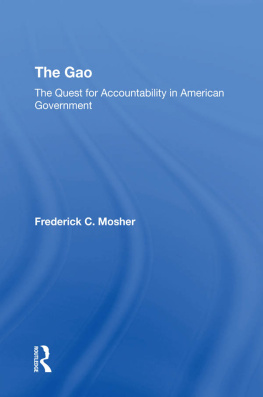

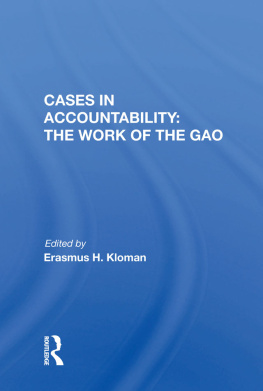
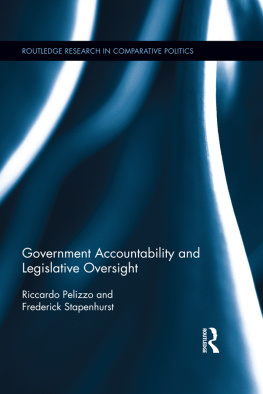
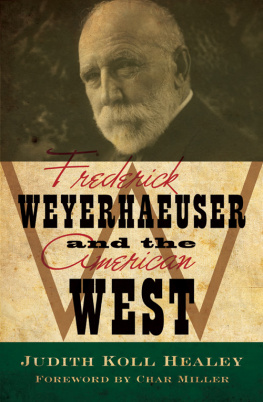
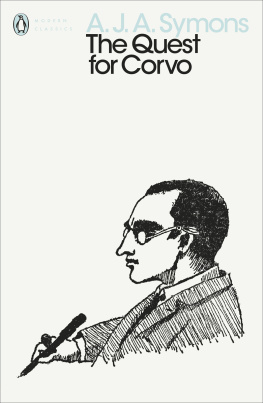


![Randy Mosher - Beer for all seasons : [a through-the-year guide to what to drink and when to drink it]](/uploads/posts/book/74958/thumbs/randy-mosher-beer-for-all-seasons-a.jpg)
